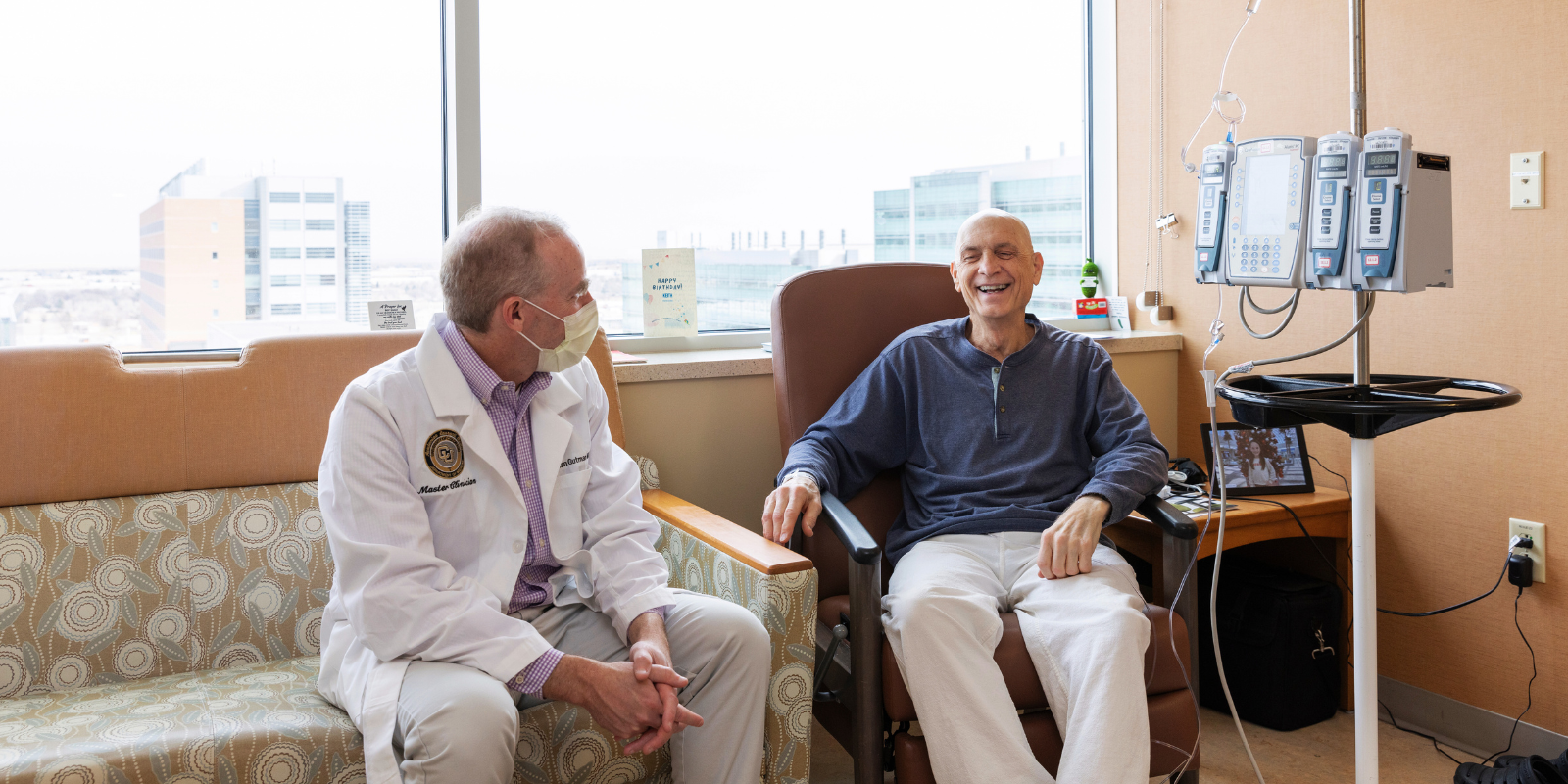Returning to work after a cancer diagnosis presents unique challenges, especially for those who work in physically demanding jobs. While many cancer survivors want or need to keep working during treatment, they often face a mismatch between their physical or cognitive capabilities, and their job demands. Oncology teams are on the hunt for work-specific resources to support these patients.
The Well-Being and Cancer at Work (WeCanWork) project was developed to meet this growing need.
Led by Dr. Cathy Bradley, PhD, dean of the Colorado School of Public Health (ColoradoSPH) and deputy director of the University of Colorado Cancer Center (CU Cancer Center), and researchers at the Centers for Health, Work & Environment (CHWE) at ColoradoSPH, WeCanWork started as a research study to identify the unique needs of employed cancer survivors, specifically low-income men. The study informed the development of an innovative intervention that connects oncology patients with occupational medicine specialists who can evaluate their work capacity and recommend job accommodations. The program also empowers oncology care providers with a streamlined referral system to better support patients navigating employment during treatment. Now in its implementation phase, WeCanWork is poised to reshape how cancer care integrates work and health
A newly published study from the WeCanWork research team highlights just how critical that support can be. The study, published in BMC Public Health and conducted by CHWE researchers, found that male cancer survivors in physically arduous jobs report significantly worse well-being than those in less physically intense roles. Funded by the CDC’s National Institute for Occupational Safety and Health (NIOSH), this study is among the first to apply the NIOSH Worker Well-being Questionnaire (WellBQ) to this population, offering new insight into how job conditions affect recovery.
“Cancer doesn’t just reveal itself in the clinic. Its impact can be felt in every part of a person’s life, including their ability to work, earn a living, and feel supported,” said Dr. Cathy Bradley. “This research is critical to understanding the realities faced by patients and developing informed solutions that will help improve a person’s livelihood and wellbeing.”
The BMC article highlighted new research led by Dr. Natalie Schwatka, PhD, assistant professor at ColoradoSPH. The team surveyed 76 male workers about three months after they began cancer treatment. Those with physically demanding jobs were significantly more likely to experience:
- Lower satisfaction with wages and benefits
- Less job autonomy and workplace flexibility
- Higher levels of negative emotional affect at work
- Greater financial insecurity and reduced support outside of work
- Worse perceptions of workplace safety and increased concerns about injury
“Worker well-being is an evolving and urgent part of occupational health,” said Dr. Schwatka. “As cancer survivorship rates increase, we need to ensure that returning to work is not a barrier to recovery—but a support for it. That starts with understanding the risks and redesigning work to support healing.
The study highlights a critical need for integrated support systems that bridge the gap between oncology care and the workplace—particularly for patients in physically demanding jobs. The WeCanWork program is designed to meet that need. Dr. Liliana Tenney, DrPH, MPH, co-director of the Center of Excellence for Total Worker Health®, is working to establish WeCanWork as a scalable model for multidisciplinary oncology clinics—from small community practices to large clinical systems—in Colorado and beyond.
“The findings from the research underscores that patients can benefit from the skills and expertise of occupational medicine,” said Dr. Tenney. “The combination of a cancer diagnosis and a physically demanding job can lead to compounding risks for both physical and psychological health. Care teams and employers must take proactive steps to support these workers.”
The research team calls for longitudinal studies and larger sample sizes to further understand the long-term implications and guide workplace interventions. They also recommend integrating Total Worker Health (TWH) strategies across oncology and occupational health systems.
Read the full study here: https://doi.org/10.1186/s12889-025-23147-8
Learn more about the WeCanWork research project here: https://coloradosph.cuanschutz.edu/research-and-practice/centers-programs/chwe/research/well-being-and-cancer-at-work-(wecanwork)





-Jul-08-2024-05-39-16-3545-PM.jpg)